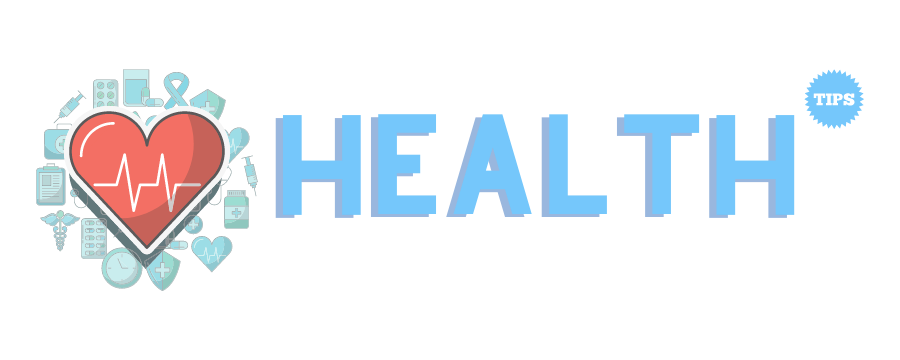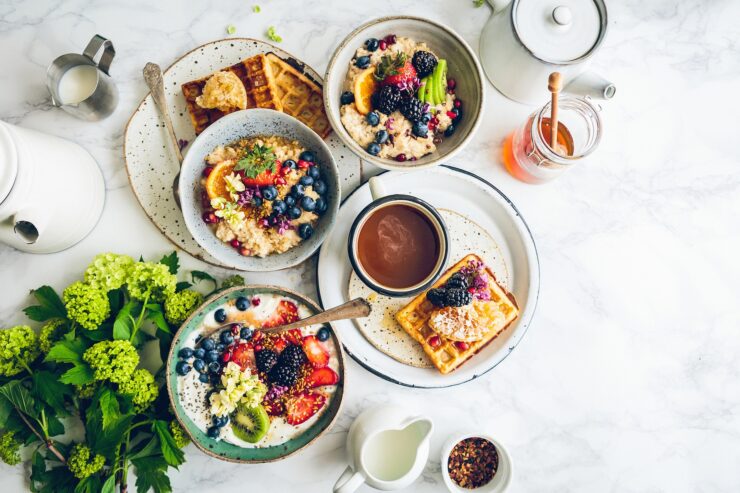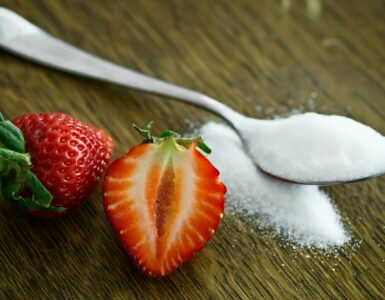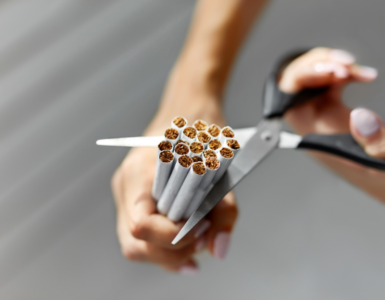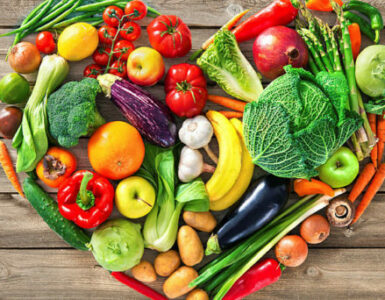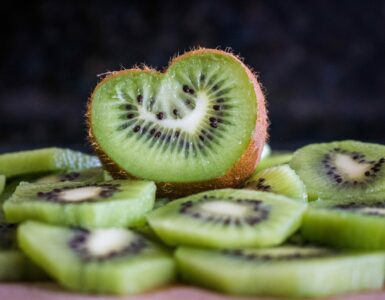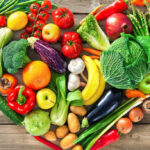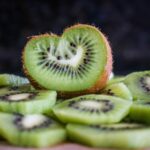A variety of healthy eating habits are appropriate for everyone—both men and women. However, everyone needs to adopt a more nutritious diet and feel good about themselves, so it’s also crucial to look at eating habits for men and women separately.
Women have particular nutritional requirements. Every stage of your life requires you to eat well, so you can manage your appetite, maintain your weight, maximize your energy, and feel great.
Their dietary requirements regarding their different hormone levels and body types are essential, so we’ve developed healthy eating habits for women.
Take Fiber-Rich Food
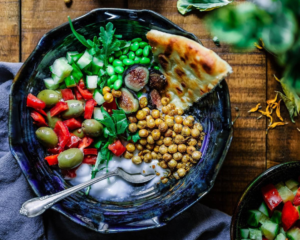
Fiber is a frequently neglected but essential nutrient for gastrointestinal health, maintaining a healthy weight, lowering cholesterol, and controlling blood sugar.
As a result of consuming fiber-rich foods, you tend to feel more satisfied after eating, which leads to eating less throughout the day.
Moreover, when fiber swells in the tummy, it absorbs and eliminates fat and calories and speeds up metabolism.
Consider taking a dish like pasta salad, and by adding high-fiber food, you can lower the caloric density of the food. For instance, you can replace some part of the pasta in the bowl with vegetables to feel fuller for an extended period and maintain a healthy blood sugar level.
Make Sure You Get Enough Calcium
Calcium is necessary for building healthy bones and teeth, ensuring they remain strong as you get older, keep your heart in rhythm, and keep your nervous system functioning well.
On the other hand, calcium deficiency may lead to or aggravate emotional problems like anger, stress, depression, and insomnia.
Osteoporosis is more common in women than men. Keeping your bones strong and healthy is therefore essential. Ensure that you consume calcium-rich foods, such as dairy products, vegetables (cabbage, kale, broccoli, and mustard greens).
Moreover, you can also include fortified products (flour and breakfast cereals) and vitamin-D foods, such as oily fish (salmon, sardines, herring, and mackerel), red meat, egg yolks, and liver.
Consume Iron Rich Food
The iron in your blood helps to make hemoglobin, which distributes oxygen throughout your body. Furthermore, it contributes to the health of the skin, hair, and nails.
Because women lose so much blood during menstruation, they require twice as much iron as men—even more during pregnancy. Unfortunately, however, many of us do not consume sufficient amounts of iron, resulting in anemia, the most common deficiency in women.
That’s why it is important to eat iron-rich foods. It includes meat and seafood. Iron is also found in plant foods, such as nuts, beans, and vegetables like (Potatoes, Cabbage, Tomato paste, and string beans).
To increase the body’s ability to absorb iron, you should combine these foods with foods rich in vitamin C.
Eat Lots of Fruit and Vegetables
Vitamins, minerals, and plant chemicals are found in fruits and vegetables. Fruits and vegetables are good for your health and help you avoid cancer, diabetes, and heart disease.
Each day, it is advisable to consume five portions of vegetables and two portions of fruit.
Fruits and vegetables contain a low amount of fat, salt, and sugar. Dietary fiber is also present in them. In addition to a balanced, healthy, and nutritious diet, high consumption of fruits and vegetables is beneficial for the following:
- Obesity reduction and the maintenance of a healthy weight
- Lower your blood cholesterol level
- Reduce your blood pressure.
Make Breakfast a Habit
After breakfast, you feel more energetic, and your glycogen stores are replenished, allowing you to maintain your metabolism all day.
If you don’t eat breakfast, you are more likely to munch on snacks in the middle of the day. However, this may be a problem if the snacks contain very little fiber, vitamins, and minerals but are high in fat and salt.
Women who regularly eat breakfast generally maintain a healthier diet, make healthier food choices, and eat fewer snacks throughout the day compared to those who do not take breakfast.
One benefit of taking breakfast is women who eat breakfast regularly tend to have a lower risk of obesity and type 2 diabetes than those who don’t. On the other hand, some research suggests that women who don’t have breakfast are more likely to develop cardiovascular disease.
-
Keep Yourself Hydrated
Water accounts for 50-70% of your body’s weight and is the primary chemical substance in your body. Therefore, you cannot survive without water.
Water deficiency can lead to dehydration — a state in which your body lacks enough water to perform typically. It’s not necessary to count only on the water to meet your fluid needs. You can prevent dehydration by consuming lots of drinks.
Although a wide range of non-alcoholic beverages is acceptable, water, lower-fat milk, and low-sugar drinks, like tea and coffee, are healthier choices.
